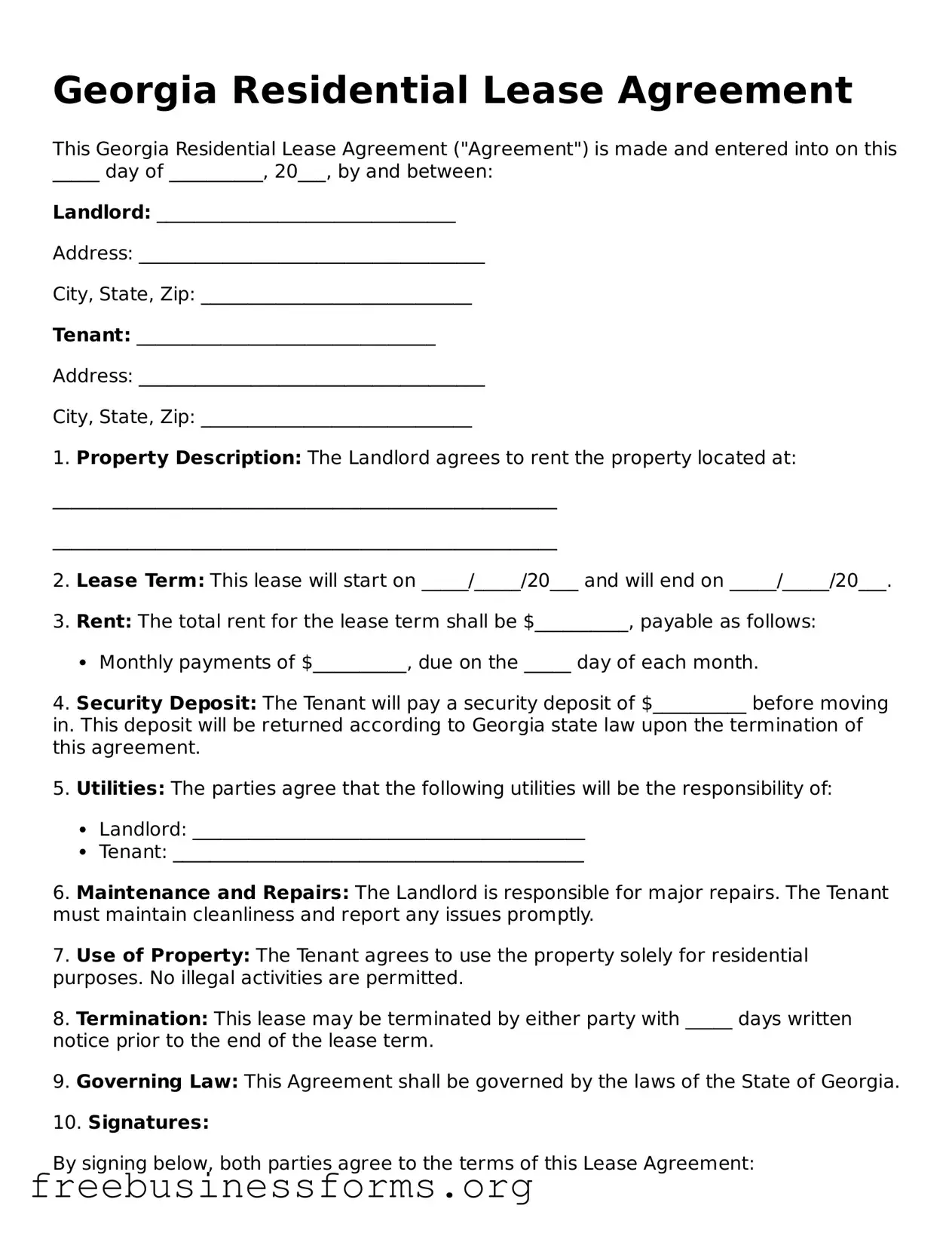Blank Residential Lease Agreement Template for Georgia
The Georgia Residential Lease Agreement is a legal document that outlines the terms and conditions between a landlord and tenant for renting residential property in Georgia. This form serves to protect the rights of both parties while ensuring clear communication regarding responsibilities and expectations. Understanding this agreement is essential for anyone involved in a rental arrangement in the state.
Open Form Here

Blank Residential Lease Agreement Template for Georgia
Open Form Here

Open Form Here
or
↓ PDF File
Quickly complete this form online
Complete your Residential Lease Agreement online quickly — edit, save, download.